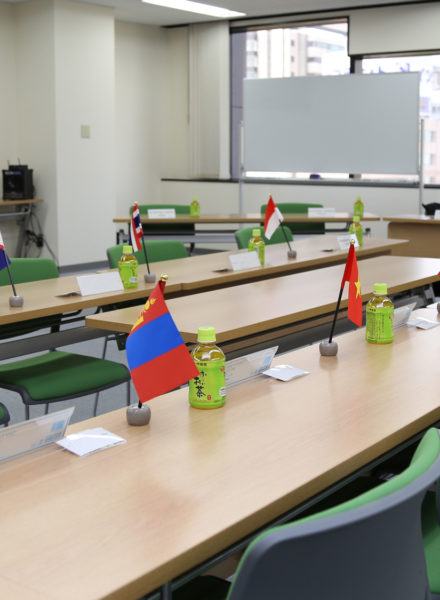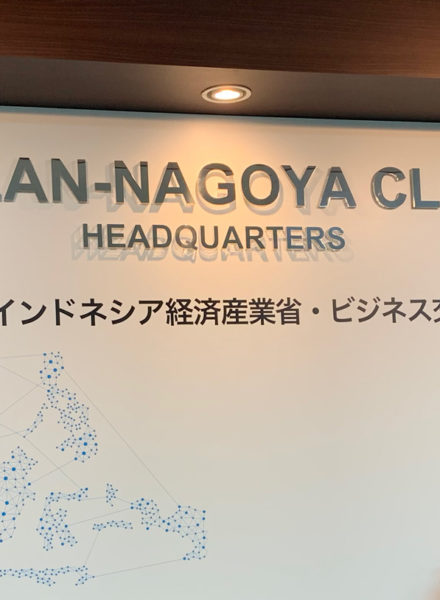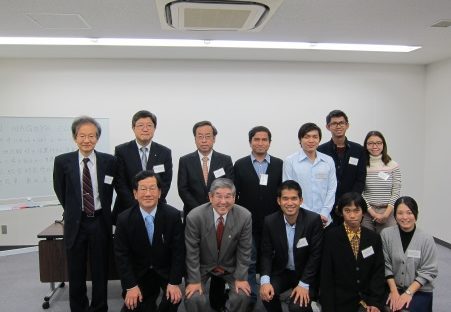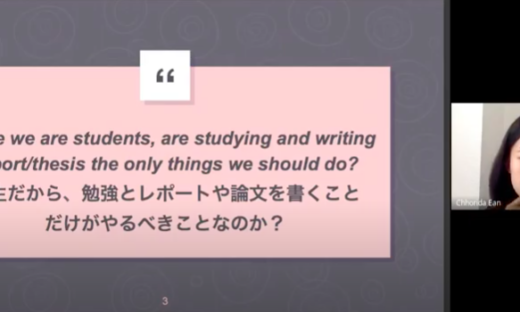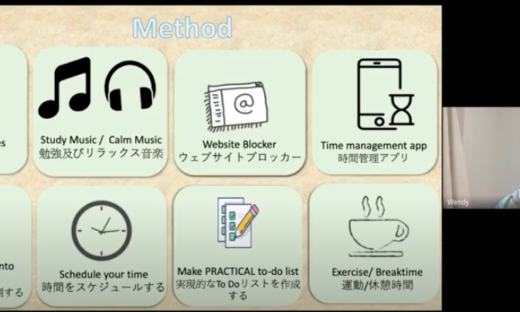定例ミーティング「日本のビジネスマナー」Regular Meeting “Japanese Business Manners”
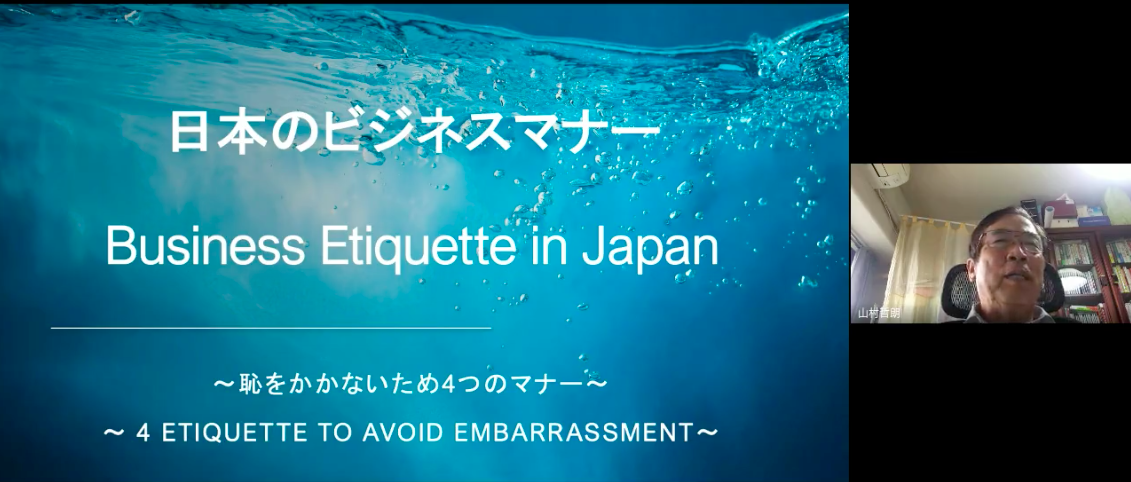
今回の参加者は、以下の通りです。
- 理事 事務局長 松久久也
- 理事 山村哲朗
- 顧問 西孝雄
- Tada Hayato(多田隼人)(日本)
- Bangkit Aditya Wiryawan (インドネシア)
- Hor Chantha (カンボジア)
- Chia-jung Wu (台湾)
- Ean Chhorida(ベトナム)
- Lim Lyhong (カンボジア)
今週、アセアン名古屋クラブの理事の山村哲朗さんは、「日本のビジネスマナー」について発表しました。
ビジネスマナーは社会人が働く上で必要とされるマナーです。ビジネスマナーを知らないと、仕事で関わる相手を不愉快にさせ、悪い印象をあたえてしまうことがあります。そうすると、商談がまとまらなかったり、社内でも協力を得られないことも起きます。本日は、「恥をかかないための4つのマナー」を中心に話しました。それは、言葉づかい、身だしなみ、時間を守ることと、仕事とプライベートを分けることです。
一つ目に言葉遣いです。主に、「挨拶」、「敬語」や「敬称」があります。外国人にとっては難しいかもしれませんが、場数を踏んで習得していくと、使えるようになります。
二つ目に、身だしなみです。ビジネスでは親しい相手だけではなく、地位や年齢、考え方が異なる人と接する必要があります。そんなときに、相手は外見をもとにその人を判断するため、不快感を与えない身だしなみが大切です。 最も大切なのは「清潔感」「上品さ」です。不潔にしていると不快感を与え、その人の評価も下がります。
三つ目に、時間を守ることです。日本では、遅刻や納期破りなど時間を守れない人は、スピード(1分、1秒)を競うビジネスの場では信用されません。社会人として働くうえでは、集合時間などは5~10分前が基本です。遅れる時は、相手に必ず連絡を入れ、理由とお詫び、到着予定時刻を伝えないといけません。
最後に、仕事とプライベートを分けることです。就業時間中は賃金が発生している意識を持ち、業務に無関係な行動は避けることです。また、取引先との契約などには守秘義務があるため、他人やSNSなどで気軽に情報を漏らさないことが基本です。例えば、会社のPCから、業務に無関係なサイトを見ることや、会社のメールアドレスから、私的なメールを送ることは禁止されています。
今回のミーティングは、留学生にとって大変勉強になりました。
The participants are as follows :
• Director Secretary General Hisaya Matsuhisa
• Director Tetsuro Yamamura
• Advisor Takao Nishi
• Tada Hayato (Japan)
• Bangkit Aditya Wiryawan (Indonesia)
• Hor Chantha (Cambodia)
• Chia-jung Wu (Taiwan)
• Ean Chhorida (Vietnam)
• Lim Lyhong (Cambodia)
This week, Mr. Tetsuro Yamamura, a director of the ASEAN Nagoya Club, made a presentation on “Japanese Business Manners”. Business etiquette is a set of rules that govern the way people interact with one another in business, with customers, suppliers, with inside or outside bodies. It is all about conveying the right image and behaving in an appropriate way. Business etiquette can sound like it focuses on small things that are unimportant, but all together they make a big difference to the workplace and the kind of responses received in all areas.
If you don’t understand about business etiquette, it can make people involved in your work feel uncomfortable and give you a bad impression. In that case, you may not be able to reach the goal of your business negotiations or won’t get cooperation within the company.
He mainly talked about “4 manners to avoid shame”. It’s about language, grooming, punctuality, and separating work and private life.
The first is language. Mainly, there are “greetings”, “honorifics” and “honorific titles”. It may be difficult for foreigners, but it is important while doing business in Japan. Being polite is important everywhere. In Japan, politeness is very closely connected to respect. Treat the youngest attendant of the meeting with respect and they won’t forget it, when once leading the company you are doing business with.
The second is grooming. In business, you need to interact not only with people you are close to, but also with people who have different positions, ages, and ways of thinking. In such a case, the other person judges the person based on their appearance, so it is important to have a good appearance that does not cause discomfort. The most important thing is “cleanliness” and “elegance”. Being filthy makes you uncomfortable and lowers your reputation.
The third is punctuality. In Japan, people who cannot be punctual are not trusted in the business (1 minute, 1 second). If you are late, you must contact the other person, apologize for the reason, and tell them your estimated time of arrival.
The last one, separate work and private life. Be aware that you are waged during working hours and avoid behavior that is not related to your work. In addition, since there is a duty of confidentiality in contracts with business partners, it is essential not to easily leak information to others. For example, it is prohibited to view non-business sites from the company’s PC or send private emails from the company’s email address.
The meeting gave an important knowledge to international students, especially to those who wish to work in Japan after graduation.
